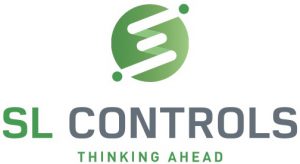Overview
Troubleshoot like a Pro. The Advanced Electrical Troubleshooting course is for those who have already completed the QQI Level 6 Industrial Electrical Systems course. All of that electrical knowledge and skills can now bear fruit by practicing logical troubleshooting methods on industrial panels and simulators with a large range of fault complexity.
Purpose-built troubleshooting training kits present learners with a machine process sequence and accompanying electrical schematics. The equipment is designed to allow the insertion of a range of challenging faults. Learners will need excellent systematic troubleshooting skills to navigate to a solution.
Participants will be given a user license for the Simutech Electrical Troubleshooting Platform for the duration of the course. This will generate enough practice so that good troubleshooting thinking skills become an automatic habit.
Who should attend
Maintenance and Process technicians
Why should I attend
Learners are exposed to multiple machine faults to enable them to internalise the thinking and testing skills needed to be an effective troubleshooter and add great value to any organisation where down time has a cost. Troubleshooting and problem solving are the most valuable and in-demand skills for anyone working in maintenance. If you understand how the equipment functions, you can bring your skill-set to a whole new level with the smart thinking skills that this course offers.
Please Note:
The programme of training equips learners with the knowledge, skill and competence to troubleshoot visually and through measurement. The training does not cover installation activities governed under Safe Electric. It should be noted that Live physical work (not including measurement as physical work) should NOT be performed on or near equipment powered with voltage above 50V DC. 4
Course Objectives
On completion of the course learners will be able to:
- Apply a logical systematic strategy for approaching machine faults and narrowing to the cause, starting with visual symptoms and evidence gathering techniques, essential logical thinking approaches to narrow down a problem area to a specific circuit, navigation of the systems and testing and verification of a fix.
- Evaluate which interventions are low risk and which carry the possibility of making things worse (by adding a second fault into the system)
- Identify which components need a setup routine when changed-out vrs those that are simple plug and play.
- Read electrical schematics to enable cause and effect relationships to be determined and test points to be established.
- Apply effective strategies for faults including: open circuits, faulty components pulling down the power supply voltage, faulty coils, machine interlock loop faults, DC & AC short circuits, faulty sensors, sticky contacts, timer faults.
- Apply safe work practises for when to work live, de-energised and when and how to isolate, Lock and Tag for maintenance.
- Communicate effectively to the next shift, document progress on an unresolved fault. A vital skill for avoiding repeated steps.
Course Modules
The Systematic Troubleshooting Method: Collect evidence of the as found faulted condition, maximise the harvesting of visual information prompts, use the 1 fault assumption to rule out sub-systems, develop binary testing methods, narrow by testing, identify cause, verify fix, ask the 5 whys to avoid re-occurance.
Practice troubleshooting with simulations. Simutech troubleshooting software including 3 phase reversing motor circuit troubleshooting and filling and mixing tank process controlled by a plc. 20 faults
Learners will get lots of practice applying their troubleshooting strategy on equipment.
Fully functional, pre-wired leadscrew with locating solenoid and sensors. All cables labelled to match supporting schematics, one kit per learner. 10 faults
Demonstrate that you can troubleshoot safely and efficiently on a range of assessed faults.
QQI Assessment
For learners completing the RPL version of this programme the assessments are as follows
- Practical Examination 1. 20% of overall mark
- Practical Examination 2. 40% of overall mark based on reading drawings, building and troubleshooting circuits.
QQI accreditation
This programme leads to the 6N2049 Electrical Principles Minor Award. It is one of eight modules needed to complete the 6M5154 Maintenance Skills Technology major award.
Entry Requirements
Learners must have achieved the QQI Level 6 Industrial Electrical Systems award in order to complete this 3 day RPL version.
Competence in written and spoken English is essential. International students whose first language is not English are required to have an appropriate score in an approved examination in English language. We accept an IELTS test score of 6. We also accept IELTS equivalents such as TOELF and Cambridge exams. If learners do not have a test result they can complete a Duolingo English Test before registering on the course. Applicants must share their Duolingo Online test score directly with us at [email protected] . The test can be taken online, costs US$49 and the result is available within 48 hours. englishtest.duolingo.com/applicants
When we receive your booking request we will call you to go through an enrolment checklist with you to ensure that you meet all entry requirements for the course you have selected.
If you have any questions before making a booking request, we’d love to hear from you.
Contact Us if you would like to know more about this training course.






































